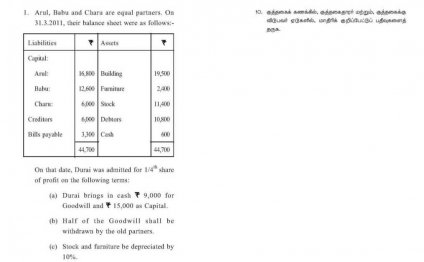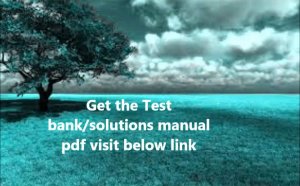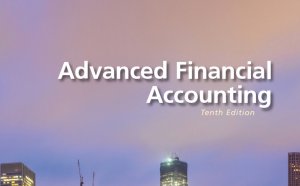Advanced Financial Accounting Syllabus
Course Outline
School
Business School
College
College of Humanities and Social Science
Credit level (Normal year taken)
SCQF Level 10 (Year 3 Undergraduate)
Availability
Available to all students
SCQF Credits
20
ECTS Credits
10
Summary
The course will build on knowledge obtained in the Financial Accounting modules of Accountancy 1 and 2 to explore some of the more complex and controversial areas of financial reporting. The object will be to develop a critical understanding of conceptual issues in financial accounting as well as to enhance technical and analytical skills. The course will cover the advanced analysis and interpretation of the annual report, some of the more complex accounting standards not addressed in earlier modules, and current issues in financial reporting.
Course description
The course broadens students' horizons by examining the regulations, techniques and debates surrounding topics such as: fair value accounting; accounting for financial instruments; revenue recognition; intangible assets, and accounting in specialist sectors. Students are also introduced to accounting for capital reconstruction. The increasing importance of accounting narratives and imagery in annual reports is also explored. The course reviews ways of analysing the corporate report and introduces new techniques for analysing quantitative and qualitative data.
This course forms a bridge between the financial accounting modules of Accountancy 1 and 2, and senior honours options in accounting such as Developments in Financial Accounting, Accounting and Everyday Life, and The Accounting Profession.
Syllabus
Accounting for fair value
Advanced analysis and interpretation of financial statements
Financial instruments
Intangible assets
Revenue recognition
Accounting in specialist sectors
Narrative reporting
Imagery in the annual report
Liquidation and reconstruction
Student Learning Experience
The course is based on weekly two-hour lecture sessions. Students will also attend four one-hour workshop session for the accounting package SAGE.
Information for Visiting Students
Pre-requisites
A pass in Accountancy 2A (ACCN08009) AND
Accountancy 2B (ACCN08010) equivalents.
Visiting students should have at least 3 Business/Accountancy related courses at grade B or above (or be predicted to obtain this). We will only consider University/College level courses.
High Demand Course?
Yes
Course Delivery Information Learning Outcomes
Academic year 2015/16, Available to all students (SV1)
Quota: None
Course Start
Semester 1
Timetable
Total Hours: 200 ( Lecture Hours 20, Supervised Practical/Workshop/Studio Hours 4, Feedback/Feedforward Hours 2, Summative Assessment Hours 7, Revision Session Hours 2, Programme Level Learning and Teaching Hours 4, Directed Learning and Independent Learning Hours 161 )
Written Exam 70 %, Coursework 20 %, Practical Exam 10 %
Additional Information (Assessment)
Degree Examination 70%
Coursework comprising an individual report of 2500 words 25%
Completion of 4 hours SAGE workshops 5%
Feedback
Generic feedback on your coursework, together with individual marks, will be available on Learn 15 working days from the submission date. You can also look at your group feedback at the Business School Undergraduate Reception (outside Room 1.11, Business School, 29 Buccleuch Place) and take away a copy of the feedback form, but you will not be able to take away the original piece of coursework, as it may be required by the Board of Examiners.
Your examination marks will be posted on Learn (together with generic feedback and examination statistics) as soon as possible after the Boards of Examiners' meeting (normally early-mid June). During the summer months (i.e. mid/end June - end August), you may come to the Business School Undergraduate Reception (outside Room 1.11, Business School, 29 Buccleuch Place) to look at your examination scripts. Note that you will not be able to remove any examination scripts from the UG Office as they may be required by the Board of Examiners.
Exam Information
Exam Diet
Paper Name
Hours & Minutes
Main Exam Diet S1 (December)
Advanced Financial Accounting
3:00
On completion of this course, the student will be able to:
- Understand and critically evaluate how theory underpins accounting regulation.
- Critically evaluate fair value as an alternative to the traditional historic cost model.
- Question and challenge practices and ideas in specific accounting standards and specialist sectors, and to recognise the context within which financial reporting operates.
- Discuss the factors which impact on accounting and those on which accounting impacts, by reference to current issues in financial accounting.
Reading List
There is no specific textbook. You should retain the textbook used in second year for Accountancy 2A (Melville, Alan, International Financial Reporting: A Practical Guide, (4th Edition).
Other sources such as books, academic journal articles (available as electronic journals) and reports from regulatory bodies (available on the internet) will be used. Readings will be provided for each week's topics.
Additional Information
Graduate Attributes and Skills
Students will gain knowledge of the application of international accounting standards.
The course seeks to further develop the analytical, communication, IT and numeracy skills of students, particularly in the use of the SAGE accounting package.
Related posts
FEBRUARY 16, 2026
Essentials of Advanced Financial Accounting is an up-to-date and highly illustrated presentation of the accounting and reporting…
Read More
FEBRUARY 16, 2026
Advanced Financial Accounting, 10th Edition - Christensen
Read More












